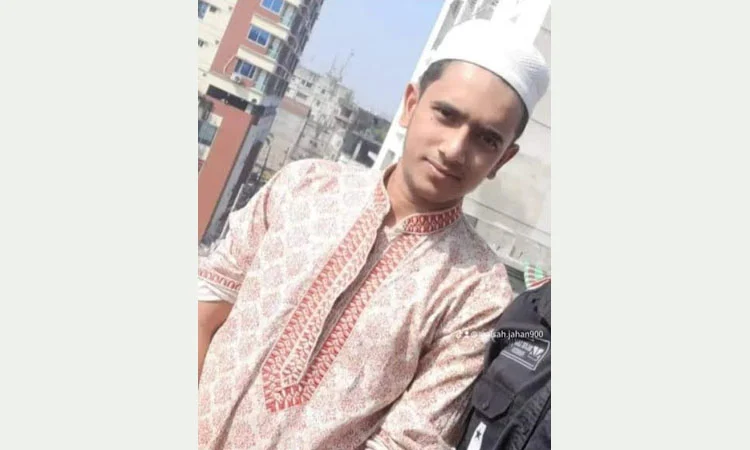Faisal Sarkar wasn’t just another student. He was a son who called his mother “Ma” every evening after work. A boy who believed that hard work could change his family’s fate. A dreamer from a small village who imagined a life in Japan, not for comfort or escape, but for purpose.
He had studied the Japanese language with discipline. He had filled out forms, planned his path, and waited patiently for his HSC exams to end so he could begin the process of leaving. Japan wasn’t a fantasy — it was his plan. A plan that ended with a gunshot to his head on July 19, 2024.
That day, Faisal left home like he always did — telling his parents he was going to the Shyamoli Paribahan counter, where he worked part-time to help cover the family’s expenses. He didn’t come back.
When his phone was found switched off later that evening, his family panicked. His younger brother Fahad called him again and again. The next day, they began searching hospitals — first in their neighborhood, then across Dhaka. Days turned to weeks. Nothing.
On July 28, 2024, desperate and broken, they filed a general diary with the police. And then, on August 1, 2024, they got an answer.
He had been buried — not as Faisal, not as someone’s beloved son or brother, but as an “unclaimed body.” The photos shown by Anjuman Mufidul Islam confirmed it. One of them was their Faisal.
His mother, Hajera Begum, never got to see her son’s face one last time. Never got to press her hand against his forehead or whisper his name. “I don’t even know which grave is his,” she wept. “I can’t stand by his grave and call out his name. My son hasn’t called me ‘Ma’ for so long. Faisal, come back to me — just once.”
Faisal wasn’t a political activist. He wasn’t a leader of the protests. He was a student — one of thousands who believed in a fairer system, in opportunity for all. But somehow, on that day, in the middle of a crowd, a bullet found his head.
Three months later, Faisal’s HSC results came out. He had passed. GPA 4.35. His name was on the list of successful candidates. The news should have been a celebration. Instead, it was a stab to the chest of a family already drowning in grief.
He was the seventh child of Safiqul Islam and Hajera Begum — born after six daughters, their long-awaited son. He was the one who stayed, who worked, who carried the family after his elder sisters married. While studying at South Khan S.M. Mozammel Haque Technical School and College, Faisal also worked as a supervisor for Shyamoli Paribahan. Every paycheck he brought home was used for groceries, rent, medicine. He gave everything.
Now, the family has nothing.
Fahad, the youngest, dropped out of college. Without Faisal’s support, his education couldn’t continue. Their family had to leave Dhaka, their life there now impossible to maintain. They returned to their village in Debidwar, Cumilla, with empty hands and heavier hearts.
Their father, now 75, speaks slowly. His voice trembles. “My son wasn’t involved in politics,” he said. “He was trying to survive. Why did they kill him? What was his fault?”
Some financial aid has come — a few lakhs from foundations and parties. But money does little to fill the silence of a lost son or repair the structure of a broken home. “We are sick, we are old,” said Safiqul. “Faisal was our only hope. Please, give a job to my younger son. We are not asking for luxuries — only to survive.”
This isn’t just the story of a protest. Or of a policy. This is the story of a boy who believed that dreams could be real. A boy who carried the weight of his parents and brother on his shoulders, quietly, without complaint.
Faisal Sarkar should have been in Japan by now — walking to class, holding a student visa in one hand, texting his “Ma” in the other. But instead, his mother sits on the floor of her village home, looking out the window, whispering into the air, asking a question no one can answer:
Where is my son buried?


